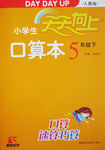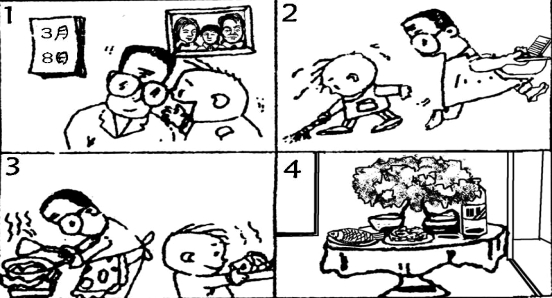题目内容
Last week I did something that scared me. I stood in front of nearly 200 financial planners and I talked to them about why financial blogs are a good thing.
I’m a confident writer. I’ve been doing this long enough that I know my strength and my limitations. I’m less confident as a speaker. I don’t have time to pause to collect my thoughts. I’m not able to edit. I’m afraid of being trapped in a corner without being able to talk my way out. Basically, I’m scared to speak.
It would be easy to simply refuse the chances that come my way. When somebody asks me to speak in front of a group, I could say “no”. When radio and television stations call for an interview, I could say “no”. But for the past two years, I’ve been following my own policy to say “yes” to new chances.
To say “yes” is to live in fear. My goal is to continually improve myself to become better than I am today. One way to do that is to do the things that scare me, to take them on as challenges, and to learn from them ― even if I fail.
In mid-November, a local station asked me to appear on live television. “I realize it’s short notice,” the producer wrote, “but we’d love to have you on the show if you’re available tonight.” I was frightened. I thought about recent taped television interviews that I had hated. I was afraid of what might happen.
But I also thought about the things that had gone right. I thought of how my speaking skills had improved over the past year. And then I thought of the book I was reading, a book that I had bought for $1.29 at the local store. The Magic of Thinking Big was a huge bestseller during the 1960s. Written by Dr. David Schwartz, a professor at Georgia State University, the book contains dozens of practical tips on how to take risks to achieve big goals. Schwartz argues that nobody will believe in you until you believe in yourself.
So when the television producer asked if I wanted to appear on his show, I thought big. “Sure,” I said. “I’ll do it.” I acted confidently, but on the inside I was frightened. What I needed was techniques to build up my confidence and to overcome my fear.
1.Why is the author afraid of speaking in public?
A. He is aware of his potential.
B. He has few chances to talk.
C. He is not able to edit what he says.
D. He likes writing better.
2.The underlined words “my own policy” in Paragraph 3 probably mean ________.
A. self-improving through challenges
B. hesitating before chances
C. turning down the invitations
D. saying yes to fear
3.The author mentioned the book The Magic of Thinking Big mainly because ______.
A. it was inspiring
B. it was a bestseller
C. its author was famous
D. its price was attractive
4.What is the author’s purpose to write the passage?
A. To analyze his strength and weaknesses.
B. To give practical tips on speaking in public.
C. To persuade people to follow his example.
D. To share his experiences of overcoming fear.
1.C
2.A
3.A
4.D
【解析】
试题分析: 本文是一篇记叙文。本篇文章中作者告诉我们他是一个自信的作家,但是他害怕在公众面前讲话。作者试图改变这一现状,敢于向挑战说“是”。在电视台邀请他做电视采访时,他起初害怕,后又鼓励自己克服恐惧心理做了电视采访而且很成功。
1.I don’t have time to pause to collect my thoughts. I’m not able to edit. I’m afraid of being trapped in a corner without being able to talk my way out.描述可知作者害怕当众讲话其中一个原因就是选项C说的他不能编辑他说的话。选项A、B、D都与本句描述不符。故选C。
2.词义猜测题。联系后半句to say “yes” to new chances.描述向新的挑战说“是”,可以猜测my own policy意思是通过挑战自我提升。故选A。
3.A细节理解题。根据第五段And then I thought of the book I was reading, ---the book contains dozens of practical tips on how to take risks to achieve big goals. Schwartz argues that nobody will believe in you until you believe in yourself.描述可知作者起先害怕电视采访,但后又想到了The Magic of Thinking Big这本书以及这本书给他的敢于冒险实现目标的勇气,最终他接受了电视采访。由此可知作者提到The Magic of Thinking Big这本书主要是因为它是鼓舞人心的。故选A。
描述可知作者突然想到不能在寒冷孤独中死去,所以她活下去的强烈欲望使她充满了力量。故选B。
4.主旨大意题。作者告诉我们他是一个自信的作家,但是他害怕在公众面前讲话。作者试图改变这一现状,敢于向挑战说“是”。在电视台邀请他做电视采访时,他起初害怕,后又鼓励自己克服恐惧心理做了电视采访而且很成功。由此可知作者写这篇文章是想与我们分享他克服恐惧的体验。故选D。
考点:考查日常生活类短文阅读

 天天向上口算本系列答案
天天向上口算本系列答案